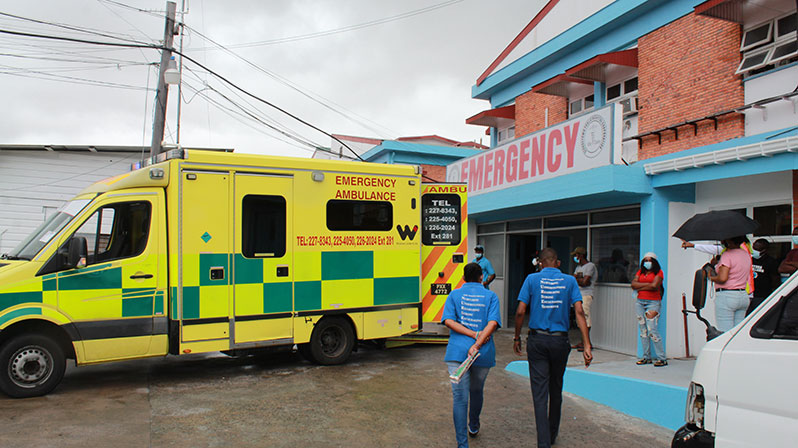– Dr. Carpen warns of ‘excess deaths’
THE effects of the COVID-19 pandemic have impacted health systems for more than one year now and Head of Internal Medicine at the Georgetown Public Hospital Corporation (GPHC), Dr. Mahendra Carpen, emphasised that treating other medical problems should not be neglected, so that excess deaths can be prevented.
Due to the emergence and spread of the novel coronavirus and the resulting pandemic, much emphasis has been placed on upgrading the local health sector to cater for COVID-19 cases. Over the past few months, monitors, cold-storage equipment, ventilators and other specialised equipment and supplies were procured. There is a COVID-19 vaccination rollout occurring in all 10 regions, currently, as well.
“As much as our attention is now focused on COVID-19, chronic Non-Communicable Diseases (NCDs) are still our number one cause of diseases and disability in this country,” Dr. Carpen said in a recent interview, emphasising: “Cardiovascular [disease] remains the number cause of death and disability or mortality or morbidity.”

In 2020, the Pan-American Health Organisation’s (PAHO)’s Non-Communicable Diseases (NCDs) progress monitor for Guyana stated that 4,400 deaths (or 68 per cent of all deaths) were caused by NCDs. Heart diseases, strokes, cancers, diabetes and chronic lung diseases are examples of NCDs.
This PAHO report was published in March 2020, which meant that this information was applicable to the year before. This, therefore, meant that the total number of deaths would have been approximately 6,471.
Dr. Carpen emphasised, “It is important that as we continue to fight COVID-19, we do not lose sight of all of the other medical problems we have as a country.”
It is also important to note that persons with underlying conditions–such as NCDs–are increasingly vulnerable to the more severe effects of COVID-19. These underlying conditions are termed comorbidities. And, Dr. Carpen cautioned that if enough focus is not given to these comorbidities, many more persons would fall ill and possibly die because they are not receiving the required treatment.
EXCESS DEATHS
In Guyana, limited available data and statistics impede an analysis of the health sector, but, Dr. Carpen is of the view that the phenomenon of “excess deaths” has manifested here, as it has around the world.
An increasing focus has been directed to the burden of mortality that could be directly or indirectly related to the pandemic. The questions: “Were there many more deaths than normally expected?” and “Was this because of the novel coronavirus?” have become important for understanding mortality in countries.
The Center for Disease Control and Prevention (CDC), a national public health institute in the United States, defines excess deaths as the difference between the deaths observed in a specific time period (such as one year) and the number of deaths that were expected for that same specific period. The “expected” deaths are calculated from the average number of deaths during the period over the past five years.
“What we have seen across the world — and I don’t know if we have the numbers to back it up in Guyana but I suspect that we do, if we look deep enough — there has been a phenomenon of excess deaths that has been recognised,” Dr. Carpen said.
He explained that these excess deaths are not attributed to COVID-19 alone, since there are a much larger number of deaths (compared to the expected deaths) than there are COVID-19 deaths. He contended that these excess deaths occur in persons with comorbidities who are not seeking the required treatment.
“If we lose sight of all of the other things that can cause real problems as well, we’re going to end up with problems just like that where people are at home with chest pain, at home having a stroke and they don’t come to hospital or they come to hospital too late when too much damage is done, or they miss their preventative health screening and follow up and clinic visits and so forth,” Dr. Carpen lamented.





.jpg)








